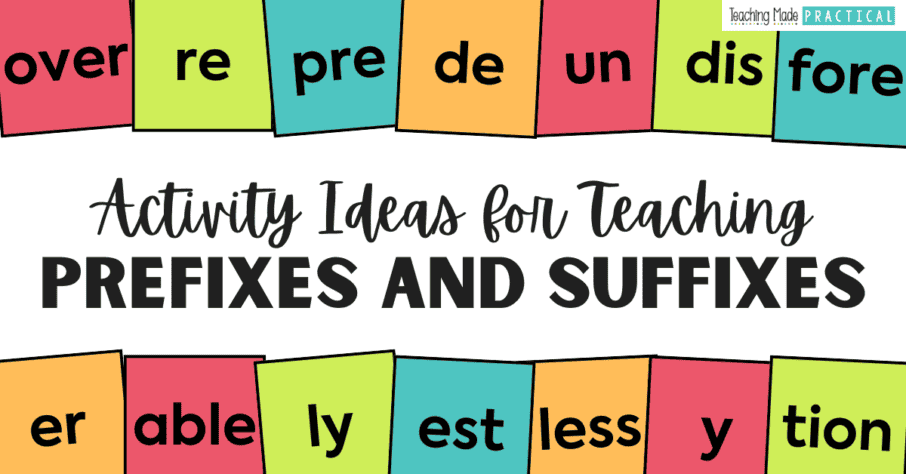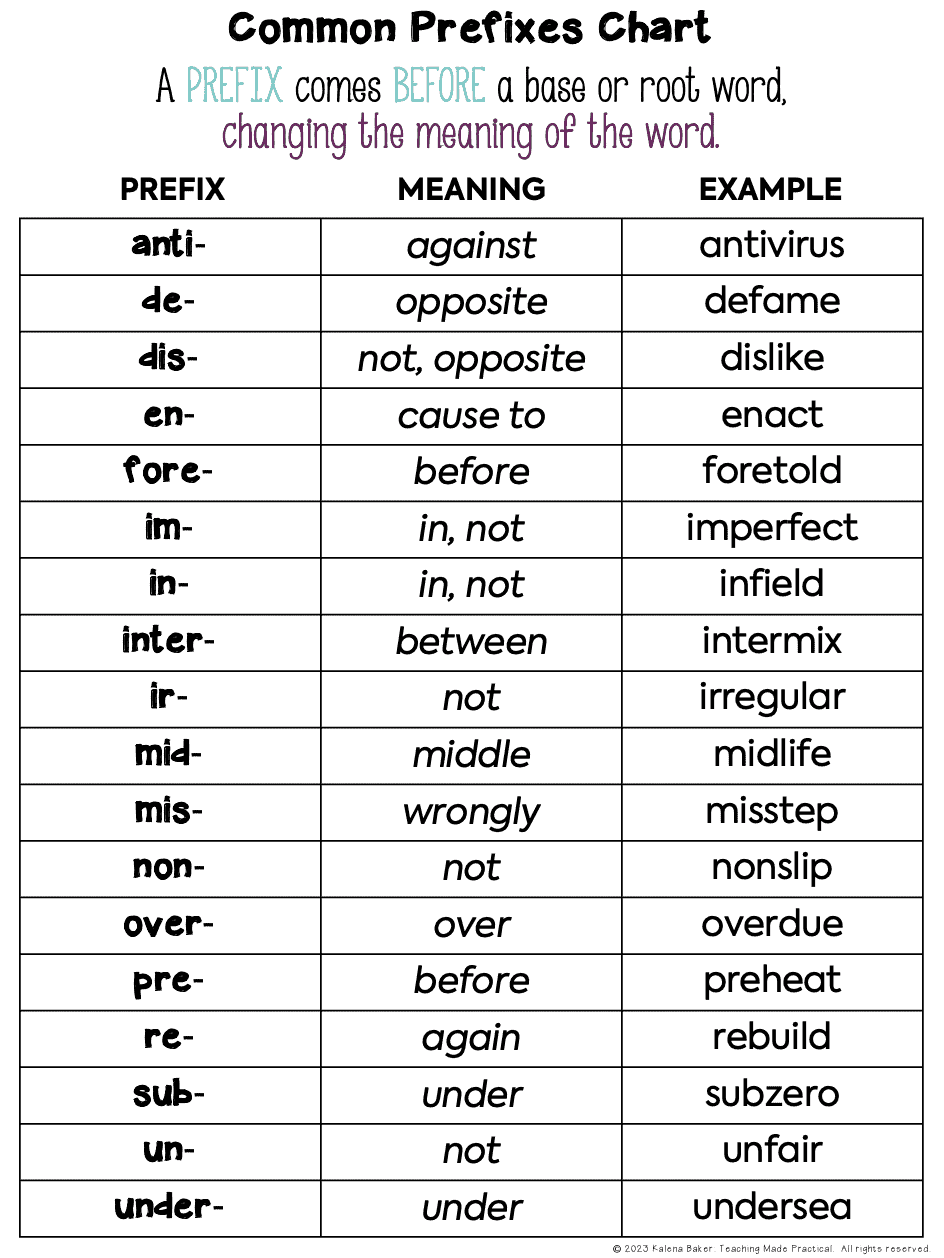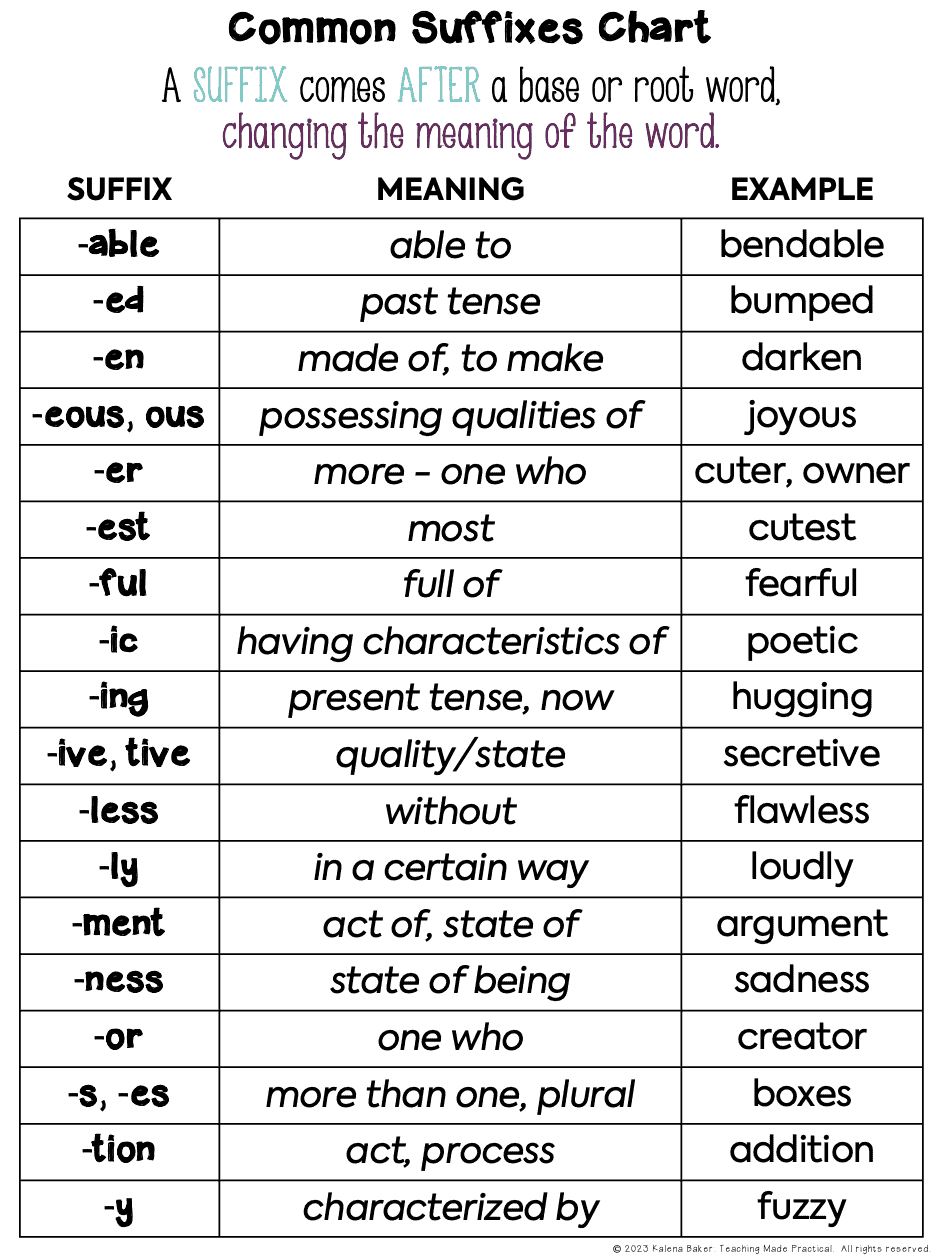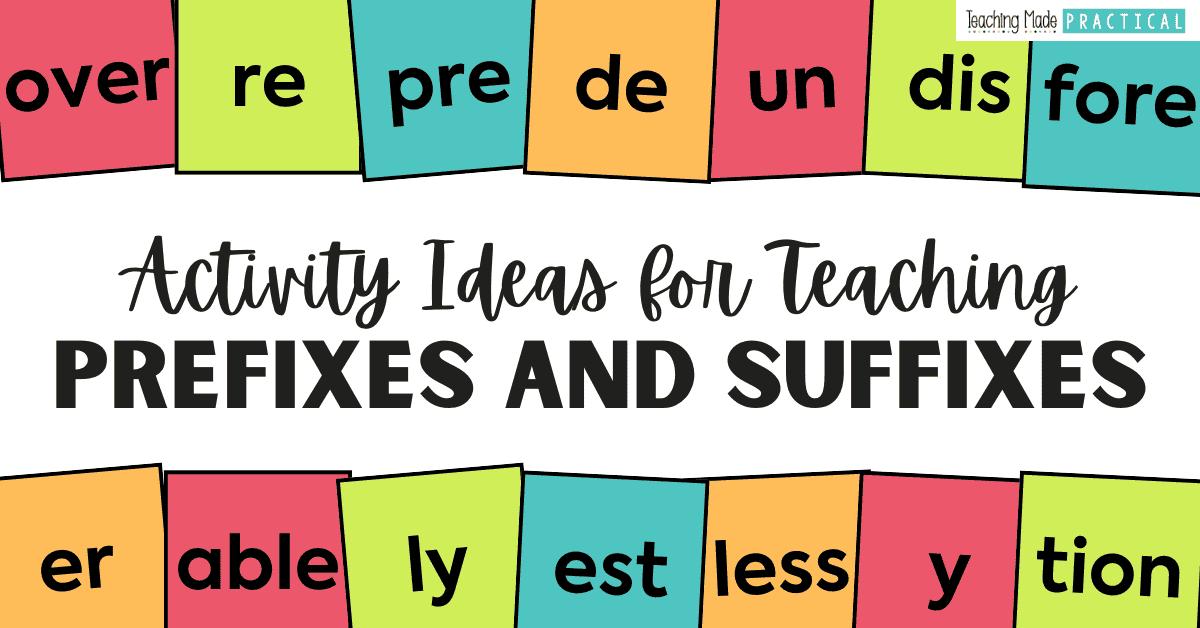
1. Use a Prefix and Suffix Anchor Chart / Reference Sheet
2. Break Multisyllabic Words Apart
Help your 3rd, 4th, and 5th grade students see how words can be broken up into manageable chunks. This makes multisyllabic words less overwhelming.
This is an easy activity if you have a list of words with a prefix, suffix, and base word. Simply have students separate each word part with a line - or for a more hands-on activity, have them cut pre-written words into chunks. The 3 words below can get you started - or get this No Prep Prefix, Suffix, and Base Word Resource with this activity already prepared for you!
- Dis / agree / ment
- Un / predict / able
- Over/ care/ ful
3. Create a Prefix and Suffix Word Wall
Post some common prefixes and suffixes on a bulletin board or blank wall. Leave space beneath each prefix and suffix so that you can post words that have that prefix or suffix.
Then, tell students that you need their help to finish the word wall. As they come across words that have these prefixes and suffixes, tell students to point them out to you so you can add them to the word wall! This is a little more interactive than an anchor chart and encourages your students to think about prefixes and suffixes throughout the school year.
You might also like these other word wall ideas for upper elementary.
4. Go on a Prefix and Suffix Scavenger Hunt
Send your 3rd, 4th, and 5th grade students on a scavenger hunt! Tell them to search your classroom for words with prefixes and suffixes. This is a great activity because it can be adapted easily for a variety of purposes.
For an independent, quiet activity, have students sit at their desk and make a list of words they find in one of their texbooks that have prefixes and suffixes.
For a more cooperative activity that gets students moving, partner your students up and let them explore the entire classroom - bulletin boards, posters, your classroom library, etc.
This can easily be turned into a game by encouraging students to find the most words, the most unique word, or the word with the most prefixes and suffixes!
And you can use the scavenger hunt activities in this No Prep Prefix and Suffix Resource to have your students go on a more intentional prefix and suffix scavenger hunt.
5. Build New Multisyllabic Words
This hands on activity is a great way to help students become more confident in reading multisyllabic words, but requires a little prep.
Start with a base word and some common prefixes and suffixes, each on their own card. Then, have students rearrange the prefixes and suffixes around the base word so that they make a bunch of different new words!
Make sure you choose a base word that doesn't require a change of spelling when adding a suffix to prevent student confusion. A word like "heat" works well:
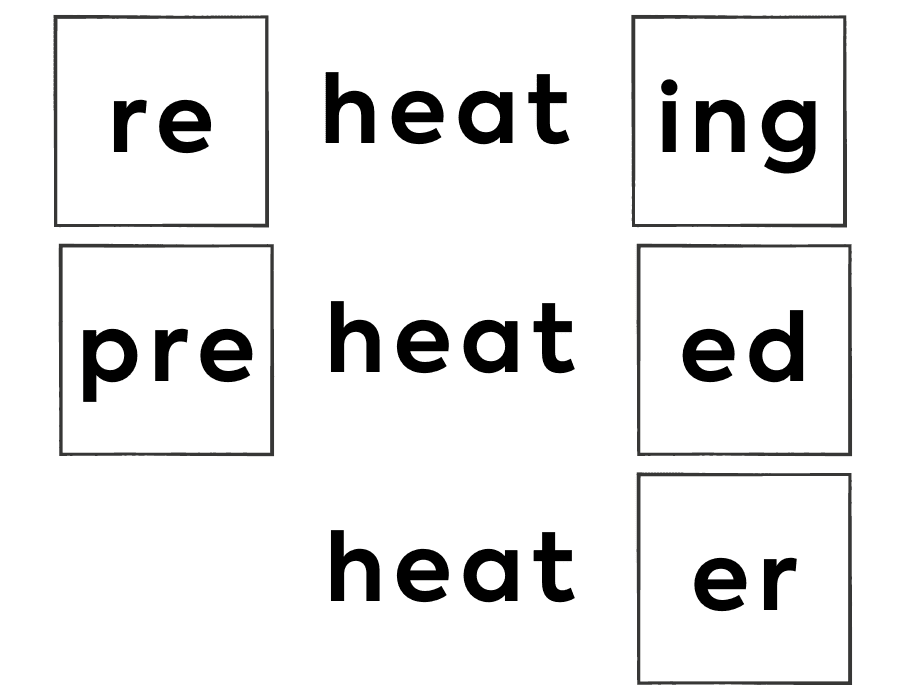
6. Prefix, Suffix, and Base Word Sorts
Help your students get more comfortable with noticing and identifying prefixes, suffixes, and base words by having them complete a sort activity.
They can:
- sort words based on whether or not there is a prefix
- sort words based on whether or not there is a suffix
- sort words that have a common base word
As long as you have a good list of Multisyllabic Words, this is a simple activity to prepare. Or, you can make it simpler and more fun by using the No Prep Maze Sorts in this Prefix, Suffix, and Base Word Resource.
7. Play Scatterogies
This makes a fun and no prep game once your students are more familiar with prefixes and suffixes. All you need is a timer and something for students to write on.
Put students into partners or small groups, tell them to make a list of words that have a certain prefix, suffix, or base word, and time them for a specific amount of time. The group with the most (correct) words wins! To make it more challenging, play like the real Scattergories and only let students count words that no other group found.
For example, you could have students make a list of words:
- that have the prefix "over"
- that have the suffix "ly"
- that have the base word "work"
You might also like these ideas to help your students become better at decoding multisyllabic words.
Want This Constructed Response Freebie?


